MercoPress. South Atlantic News Agency
Brazil
-
Monday, June 3rd 2013 - 17:43 UTC
Millions turn out in Sao Paulo in support of Gay Pride Parade
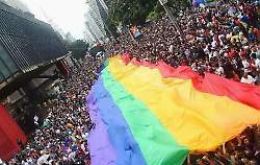
Millions gathered on Sunday in Sao Paulo, Brazil to take part in one of the largest parades in the world. According to the organizers, 3.5 million people attended the parade and the festivities that followed.
-
Monday, June 3rd 2013 - 05:08 UTC
Argentina’s policy on foreign investments keeping businesses away
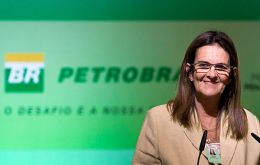
Concern over Argentina's erratic policy on foreign investments is pushing regional business entrepreneurs toward caution and or keeping them away from South America’s second largest economy. Argentina nationalized Spanish oil major Repsol's majority stake in local energy giant YPF last year, a move that triggered alarm in the international investor community.
-
Saturday, June 1st 2013 - 19:06 UTC
Mercosur plan to delay summit and give time to Paraguay to return with full rights

Paraguay is considering the announcement made by Uruguayan president Jose Mujica who suggested delaying the coming Mercosur summit in Montevideo scheduled for the end of June, ‘to wait and give time for Paraguay’ (currently suspended) to return to the block.
-
Saturday, June 1st 2013 - 19:03 UTC
Biden meets Rousseff, underlines the importance of a broader relationship with Brazil

US Vice-President Joe Biden wound up a visit to Brazil on Friday saying it was high time the two largest economies in the Americas became closer partners in trade, investment and energy. He made the statement following a ‘wide-ranging discussion’ with President Dilma Rousseff at the Planalto palace in Brasilia.
-
Friday, May 31st 2013 - 07:34 UTC
Vice-president Biden praises and challenges Brazil; meets Rousseff on Friday
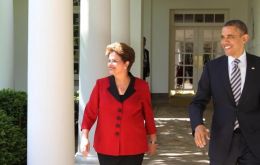
U.S. Vice President Joe Biden encouraged Brazil to open its economy further to keep up with free trade trends worldwide during a visit aimed at boosting business between the two largest economies in the Americas.
-
Friday, May 31st 2013 - 07:19 UTC
Despite great agriculture performance Brazil’s economy first quarter result disappoints
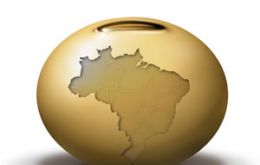
Brazil's economy grew 0.6% in the first quarter of 2013, compared with the final quarter of last year, the government said this week. The figure could confirm official projections that the economy would recover following the slowdown experienced over the past two years.
-
Friday, May 31st 2013 - 07:15 UTC
Fearing high inflation Brazil raises basic rate 50 basic points to 8%
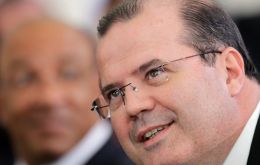
Brazil's central bank raised its benchmark interest rate on Wednesday to 8% from 7.5%, as part of an effort to battle high inflation in an economy that keeps struggling with slow growth.
-
Wednesday, May 29th 2013 - 20:32 UTC
Obama to welcome Rousseff: a “new era” starts in Brazil
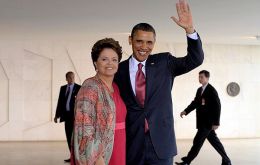
A communiqué released today by the White House said, “The President and First Lady will host Dilma Rousseff, President of the Federative Republic of Brazil, for an official State Visit with a State Dinner at the White House on October 23,” in what the United States hopes will mark the start of “a new era in relations”, as announced by Vice President Joe Biden, in Rio de Janeiro.
-
Tuesday, May 28th 2013 - 05:57 UTC
Brazil World Cup 2014: heavy rain tears through roof a newly constructed stadium
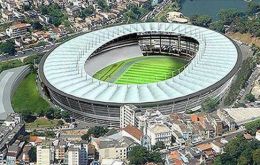
Heavy rains in the Brazilian north-eastern city of Salvador tore through the roof of a newly constructed stadium for Confederations Cup soccer games starting next month, a warm-up before Brazil hosts the World Cup next year.
-
Monday, May 27th 2013 - 08:22 UTC
Brazil’s April current account deficit a new record pushed by negative trade balance
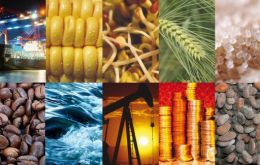
Brazil posted another hefty current account deficit in April as its traditional trade surplus has turned into a deficit this year and foreign companies are repatriating more of their profits, according to central bank data.
